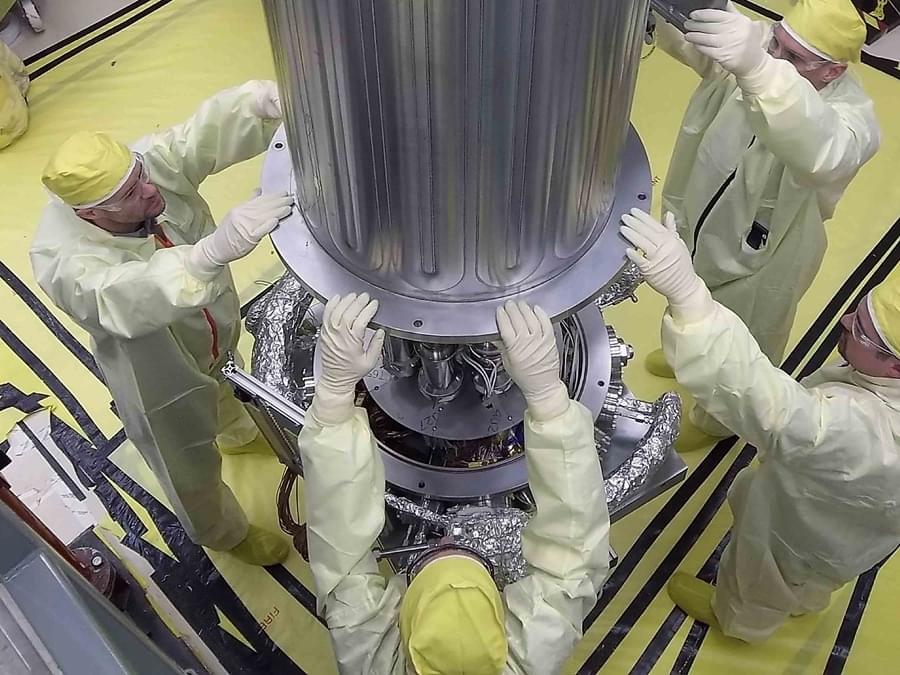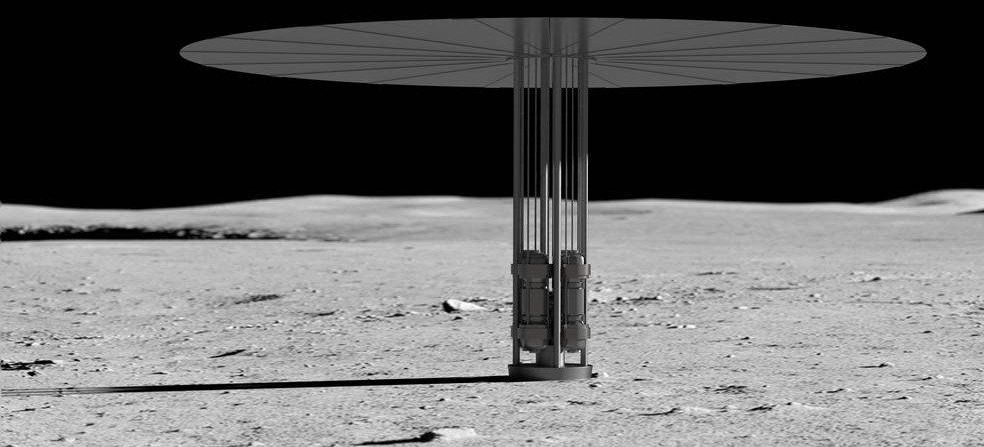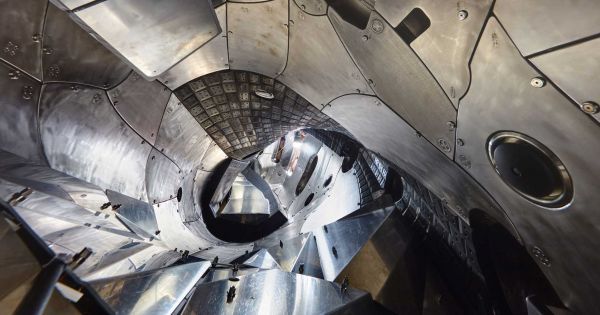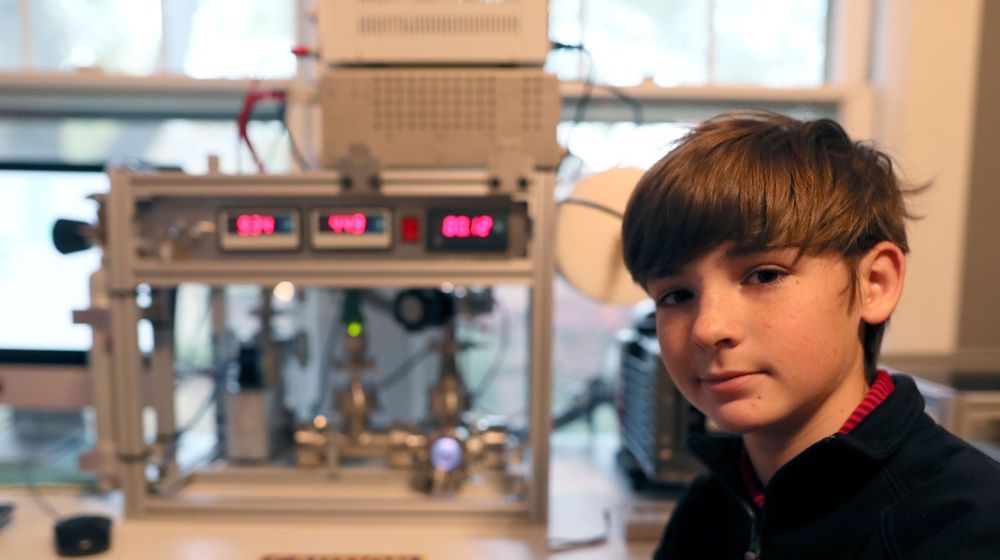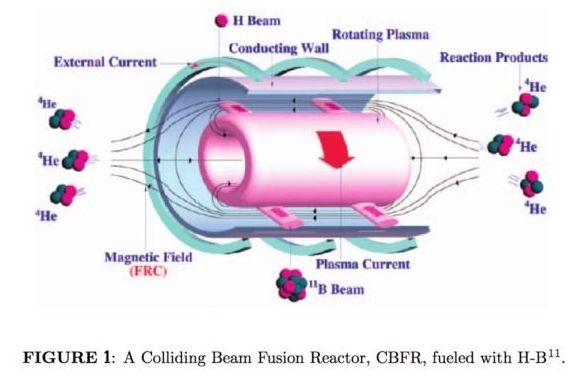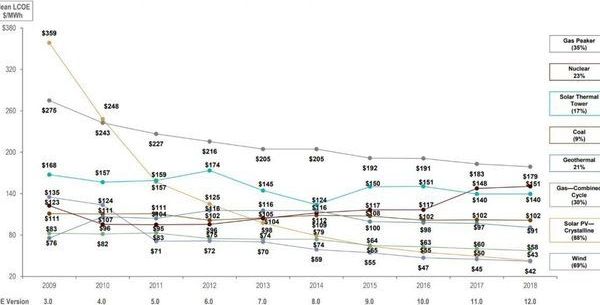Archive for the ‘nuclear energy’ category: Page 114
Feb 8, 2019
We need more powerful nuclear engines to explore farther and faster into space
Posted by Klaus Baldauf in categories: nuclear energy, space travel
Nuclear power has powered rockets for decades, but reaching deep space will require a big leap.
Feb 6, 2019
A Nuclear Fusion Reactor Just Set Several World Records
Posted by Quinn Sena in category: nuclear energy
Feb 2, 2019
Weathersbee: To build a nuclear reactor, the ‘nuclear kid’ had to become a welder first
Posted by Genevieve Klien in categories: education, nuclear energy
Jackson Oswalt, 14, built a nuclear reactor at his home. He may be a potent weapon for state Sen. Katrina Robinson’s push for middle school skills training.
Jan 22, 2019
If TAE Technologies Succeeds With Commercial Fusion Then a Fusion Rocket Will Follow
Posted by Klaus Baldauf in categories: nuclear energy, particle physics
TAE Technologies has also looked at building a nuclear fusion rocket. Nextbigfuture had covered TAE Technologies recent announcement that they will have a commercial nuclear fusion rocket by 2023.
The AIP Conference Proceedings 2004 – Colliding Beam Fusion Reactor Space Propulsion System
The Colliding Beam Fusion Reactor (CBFR( requires approximately 50 MW of injected power for steady-state operation. The H-B11 CBFR would generate approximately 77 MW of nuclear (particle) power, half of which is recovered in the direct-energy converter with 90% efficiency. An additional 11.5 MW are needed to sustain the reactor which is provided by the thermo-electric converter and Brayton-heat engine. The principal source of heat in the CBFR-SPS is due to Bremstrahlung radiation. The thermo-electric converter recovers approximately 20% of the radiation, or 4.6 MW, transferring approximately 18.2 MW to the closed-cycle, Brayton-heat engine.
Jan 19, 2019
Why it is dangerous to build ever larger big bang machines
Posted by LHC Kritik in categories: alien life, astronomy, cosmology, energy, engineering, ethics, existential risks, general relativity, governance, gravity, innovation, law, nuclear energy, nuclear weapons, particle physics, philosophy, physics, policy, quantum physics, science, scientific freedom, security, singularity, space travel, supercomputing, theory, time travel
CERN has revealed plans for a gigantic successor of the giant atom smasher LHC, the biggest machine ever built. Particle physicists will never stop to ask for ever larger big bang machines. But where are the limits for the ordinary society concerning costs and existential risks?

CERN boffins are already conducting a mega experiment at the LHC, a 27km circular particle collider, at the cost of several billion Euros to study conditions of matter as it existed fractions of a second after the big bang and to find the smallest particle possible – but the question is how could they ever know? Now, they pretend to be a little bit upset because they could not find any particles beyond the standard model, which means something they would not expect. To achieve that, particle physicists would like to build an even larger “Future Circular Collider” (FCC) near Geneva, where CERN enjoys extraterritorial status, with a ring of 100km – for about 24 billion Euros.
Experts point out that this research could be as limitless as the universe itself. The UK’s former Chief Scientific Advisor, Prof Sir David King told BBC: “We have to draw a line somewhere otherwise we end up with a collider that is so large that it goes around the equator. And if it doesn’t end there perhaps there will be a request for one that goes to the Moon and back.”
“There is always going to be more deep physics to be conducted with larger and larger colliders. My question is to what extent will the knowledge that we already have be extended to benefit humanity?”
Continue reading “Why it is dangerous to build ever larger big bang machines” »
Jan 18, 2019
Plunging Prices Mean Building New Renewable Energy Is Cheaper Than Running Existing Coal
Posted by Caycee Dee Neely in categories: climatology, nuclear energy, sustainability
A https://www.carbontracker.org/42-of-global-coal-power-plants…rst-study/” target=”_blank” rel=” nofollow noopener noreferrer” data-ga-track=” ExternalLink: https://www.carbontracker.org/42-of-global-coal-power-plants…rst-study/”>new report reveals 42% of global coal capacity is currently unprofitable, and the United States could save $78 billion by closing coal-fired power plants in line with the Paris Climate Accord’s climate goals. This industry-disrupting trend comes down to dollars and cents, as the cost of renewable energy dips below fossil fuel generation.
Across the U.S., renewable energy is beating coal on cost: The price to build new wind and solar has fallen below the cost of running existing coal-fired power plants in Red and Blue states. For example, Colorado’s Xcel will retire 660 megawatts (MW) of coal capacity ahead of schedule in favor of renewable sources and battery storage, and reduce costs in the process. Midwestern utility MidAmerican will be the first utility to reach 100% renewable energy by 2020 without increasing customer rates, and Indiana’s NIPSCO will replace 1.8 gigawatts (GW) of coal with wind and solar.
Lazard’s https://www.lazard.com/perspective/levelized-cost-of-energy-…rage-2018/” target=”_blank” rel=” nofollow noopener noreferrer” data-ga-track=” ExternalLink: https://www.lazard.com/perspective/levelized-cost-of-energy-…rage-2018/”>annual Levelized Cost of Energy (LCOE) analysis reports solar photovoltaic (PV) and wind costs have dropped an extraordinary 88% and 69% since 2009, respectively. Meanwhile, coal and nuclear costs have increased by 9% and 23%, respectively. Even without accounting for current subsidies, renewable energy costs can be considerably lower than the marginal cost of conventional energy technologies.
Dec 29, 2018
New Calculations May Finally Make Fusion Energy a Reality
Posted by Genevieve Klien in category: nuclear energy
But despite all our advances, we’re not a whole lot closer to creating net-positive nuclear fusion. Put simply, that’s because these machines just take so much energy to generate plasma.
In fact, Wendelstein 7-X isn’t even intended to generate usable amounts of energy, ever. It’s just a proof of concept.
But for years, Hora and her team have been working on alternative designs. And in this study, they tested them out experimentally as well as through simulations.
Dec 27, 2018
Scientists Create New Method of Fusion Energy, Without the Old Complications
Posted by Genevieve Klien in category: nuclear energy
A once-impossible new technique creates fusion energy with powerful lasers and without radioactive fuel.
